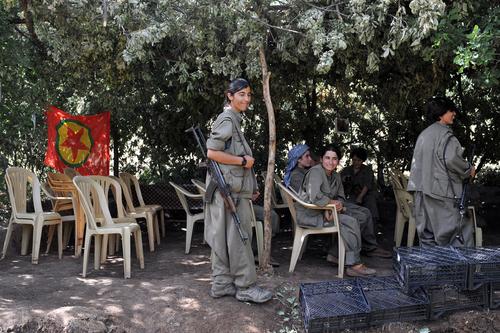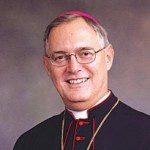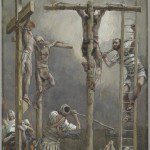
by Max Lindenman
If you want to help the Kurdish people and fight IS, the Lions of Rojava are hiring. Just check Facebook.
With the motto “It’s better to live one day as a lion than thousands of days as a sheep” — an unattributed paraphrase from Mussolini — the Lions of Rojava make up a sort of foreign legion within the Kurdish Peoples’ Protection Units or YPG, which operate against IS in Syrian Kurdistan. Hundreds of Westerners, including more than 130 Canadians and 100 Americans, have already joined their ranks.
Founded in 2004, the YPG organized and trained in secret until 2011, when civil war broke out. Since then, it has defended Kurdish regions against both the Assad regime and the various rebel groups associated with the Free Syrian Army. Since last October, YPG and FSA forces have been fighting jointly to liberate Kobani from IS.
Fighting mainly with small arms and organized on democratic lines, the YPG elects its own officers and is famously cohesive. Initially, it was also famously independent. A Vice profile of the group published in 2012 called it “The Kurdish Militia that Doesn’t Want Help from Anyone.”
This changed last October, when the Lions of Rojava began advertising on Facebook. As if to ply the international market in the international language, all the copy on the page, including status updates, is in English. So are most of the comments. A clip featuring a televised interview with a recent Dutch recruit has English subtitles.
The message in the “About” section is simple, non-ideological, and urgent: “JOIN People’s Defense Units/YPG/in Rojava, Syria,” it states. “SEND TERRORISTS TO HELL and SAVE HUMANITY.” The main page also includes pleas for funds, along with a link to the homepage of Heyva Sor a Kurdistanê, a Kurdish aid organization based in Germany. The page is also in English.
Though it’s hard to know how much of the credit to give to Facebook, the YPG has been attracting a steady stream of Western volunteers. Since being wounded by mortar fire, Jordan Matson, a Wisconsin native who joined after seeing IS capture the Iraqi city of Mosul, has been serving the YPG as a recruiter. Like Matson himself, who served two years in the US Army (though without seeing action), many of his contacts have military experience.
“I’ve had ex-military ask from Eastern Europe, Western Europe, Canada, the United States, Australia, you name it,” Matson told CNN.
Other Western YPG recruits present themselves with no credentials beyond a willingness to fight. Though 49 years old and a grandfather, with no military experience, American Dean Parker left his Arcadian existence giving surfing lessons in Costa Rica for the dangers of the Syrian front. For Parker, inspiration struck when a TV newscast showing Yazidis, trapped by IS forces on Mt. Sinjar, near Kobani.
“I actually became physically ill and was crying uncontrollably. This has never happened to me before, and that was it,” Parker told the Daily Mail.
From its foundation, the YPG has armed and trained women for front-line service, and some foreign women have been answering the call. The Mail names Gill Rosenberg, a Canadian, and Joanna Palani, a Dane of Kurdish ancestry. When 17-year-old Silhan Ozcelik, a British girl whose family’s roots are Kurdish, disappeared from her home in Haringey last November, friends and family told the Evening Standard they suspected she’d gone to join YPG.
Like Palani and Ozcelik, the bikers from the Köln-based Median Empire Dark City Motorcycle Club said by the Washington Post to have joined up, are ethnic Kurds. But Matson, Parker, and Rosenberg have no known Kurdish roots. Neither do the three YPG volunteers from the Dutch gang No Surrender, whose motives confound observers.
“[White] biker gangs in Europe are not known for their solidarity with people from the Middle East,” Ishaan Tharoor observes in the Washington Post.
YPG officers do inquire into volunteers’ motives. “We welcome international comrades who are qualified fighters and understand our cause too,” YPG Captain Azad Hussein told Your Middle East. “However, we reject those wanting to join us just because they are disillusioned with their lives and look for some sort of adventure.”
The YPG have been linked to the Kurdistan Workers’ Party, or PKK. Founded in 1978, the PKK waged guerrilla warfare against Turkish government forces until a 2013 ceasefire. Last October, it ended that ceasefire with an ambush on Turkish police. The European Union, the US State Department, and the United Nations include the PKK on their lists of terrorist organizations.
YPG members claim that their organization’s ties to the PKK are loose — not institutional, but ideological. The binding ideology is PKK founder Abdullah Öcalan’s democratic confederalism, which Öcalan defines as “democracy without a state,” where a loose association of small, local “units” govern themselves according to egalitarian principles.
Kristopher Nicholaidis, a 28-year-old Greek artist who’d previously dedicated his art to opposing Greece’s far-right Golden Dawn party, says that the YPG is “leading the greatest anti-fascist struggle of our time.”
The wall post of Joshua Bell, a Westerner serving with the YPG and reposted on the Lions of Rojava page with translations into eight languages states:
“While the Kurds are not wealthy by western standards…They are very rich in other areas such as history, customs, and love.
“I wish the rest of the world would be like the YPG. They love regardless or race, gender, or religion. All are equal. Kurdistan is one giant family. I am proud to be a member of this family.”
American and British authorities have both discouraged their citizens from joining the YPG. The British Home Office’s statement warns that serving “could be an offence under both criminal and terror laws.”
Jordan Matson told CNN he doesn’t believe the US government will prosecute him or deny him re-entry, however. “Once this fight is over, and IS has been crippled, then the next stage of my life, then I’ll think about that,” he said.
Max Lindenman is writing from Turkey. His Patheos blog archives can be accessed here. 












